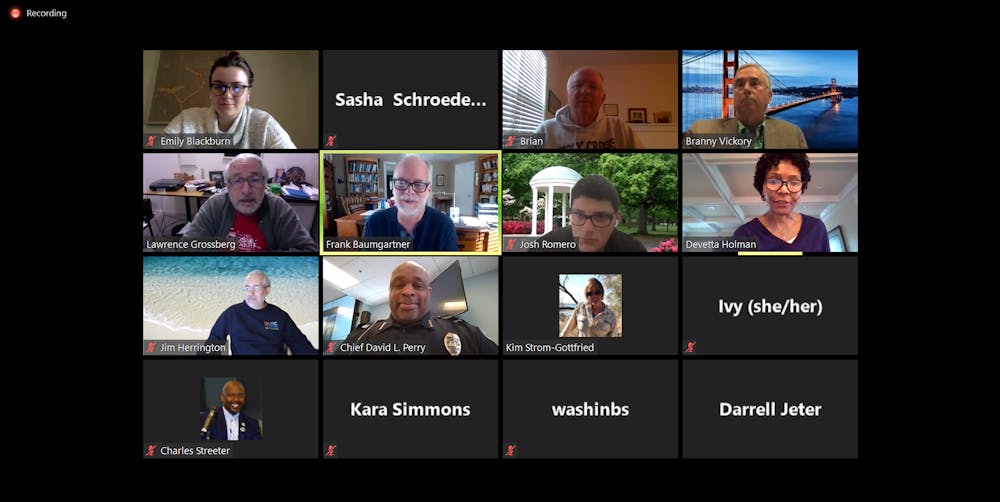The UNC Campus Safety Commission met Wednesday morning to discuss civilian review of police conduct, the discharging of lethal weapons by law enforcement officers and updates on the COVID-19 pandemic.
The meeting began with conversations about the end-of-year report the commission will be submitting to Chancellor Kevin Guskiewicz in early May.
“In order to improve transparency, accountability and trust between the UNC community and the UNC PD, we strongly recommend the creation of a Civilian Review Board,” the Policing Subcommittee’s recommendations for the end-of-year report read.
The report will include recommendations from the Commission on several topics pertaining to safety at UNC, including police behavior, sexual violence, anti-racist activism and the safety of marginalized communities.
Members of the commission also discussed whether or not police officers should carry lethal weapons on all calls they attend to, instead of just some.
“Any kind of call that you get can go bad quickly, and you need to be able to respond appropriately,” Brian Curran, former chief of police for the Town of Chapel Hill, said. “I don’t want to take tools out of the officers’ hands that they might need.”
Lawrence Grossberg, a professor of communication studies and cultural studies, said that he has heard from students who don’t feel safe when officers bring lethal weapons on some calls.
“Has there ever been an instance on campus where the police have responded to a medical emergency and found it necessary to use their weapons or even to threaten to use their weapons?” Grossberg asked.
Grossberg said the presence of lethal weapons is a problem for students.




